
 Even the youngest children seem to have an affinity towards playing a musical instrument. Put any child in front of a piano, guitar, or drum, or hand them a tambourine or shaker and they’ll immediately engage in generating sound and rhythm. It seems to be instinctive and children find music-making almost compelling — and great fun to boot. What’s more, children seem naturally keen to become better at playing instruments and, in time, to be able to play a recognisable tune. With that being the case, it’s often very easy to encourage them to take lessons, whether formally or informally, often leading to a lifelong vocational skill. What many parents may not know, however, is just how beneficial learning to play musical instruments is to little ones. Indeed, learning to play benefits them in often profound ways and that’s what we take a look at in today’s post.
Even the youngest children seem to have an affinity towards playing a musical instrument. Put any child in front of a piano, guitar, or drum, or hand them a tambourine or shaker and they’ll immediately engage in generating sound and rhythm. It seems to be instinctive and children find music-making almost compelling — and great fun to boot. What’s more, children seem naturally keen to become better at playing instruments and, in time, to be able to play a recognisable tune. With that being the case, it’s often very easy to encourage them to take lessons, whether formally or informally, often leading to a lifelong vocational skill. What many parents may not know, however, is just how beneficial learning to play musical instruments is to little ones. Indeed, learning to play benefits them in often profound ways and that’s what we take a look at in today’s post.
The Educational Benefits of Learning a Musical Instrument
It Boosts Reading Skills
 When children play a musical instrument, learning to read music is a natural progression. Although it is communicated using different symbols, reading music is akin to reading words in a book. There is a flow from one side of the page to the other, every detail needs to be taken into consideration, and the left side of the brain is doing the work. Indeed, the left side of the brain controls reasoning and processes language. Whether reading music or words, each mark means something and communicates something to the reader. As such, children who learn to read music and do so regularly may find that it also helps them to read words in books.
When children play a musical instrument, learning to read music is a natural progression. Although it is communicated using different symbols, reading music is akin to reading words in a book. There is a flow from one side of the page to the other, every detail needs to be taken into consideration, and the left side of the brain is doing the work. Indeed, the left side of the brain controls reasoning and processes language. Whether reading music or words, each mark means something and communicates something to the reader. As such, children who learn to read music and do so regularly may find that it also helps them to read words in books.
It Enhances Mathematical Skills
Music is deeply linked to mathematics and indeed one of the first things children will learn when playing or learning music is to count the beats in a bar. Music, they will discover, is a real-life, tangible, application of maths. There are notes that last a full beat, two beats, fractions of a beat and so on. So, when children learn a musical instrument and play musical pieces, they also get a mathematical workout for their brains.
Playing Music Supports the EYFS Curriculum
As well as helping with mathematics and reading, playing a musical instrument helps children in other areas of the EYFS curriculum. Creativity, communication, personal and social development, and understanding the world are all supported through the endeavour. It’s a powerful skill to master.
The Physiological Benefits of Learning a Musical Instrument
It Aids Cognitive Development
 Learning to play a musical instrument and read music requires thought, deep concentration, and analysis. All such activity is great exercise for a child’s developing brain. It gets synapses firing, helps in the development of new connections, and truly enhances cognitive development. It’s rather like a multi-gym for the brain!
Learning to play a musical instrument and read music requires thought, deep concentration, and analysis. All such activity is great exercise for a child’s developing brain. It gets synapses firing, helps in the development of new connections, and truly enhances cognitive development. It’s rather like a multi-gym for the brain!
It Helps Boost Motor & Coordination Skills
Learning to play musical instruments also requires fine control over movement and good coordination. Practising helps children hone such skills, with the brain learning how to coordinate hand-eye movements and the coordination of the hand, finger and arm movements needed for successful playing.
Music Improves Listening Skills
Good listening skills are incredibly important in life, particularly during childhood. When they listen attentively, children will learn far more deeply. Playing a musical instrument, learning to read music, and analysing music and rhythm naturally encourage children to listen closely. By doing so, they’ll catch on to the small details as well as the overall picture. And, by practising deeply focused listening, they will naturally become more adept at it in their day-to-day lives, at school, and later as adults in business. Indeed, active listening is one of the most powerful tools for any consultant to master.
The Social Benefits of Learning a Musical Instrument
It Can Boost Children’s Social Circles
 When children learn to play a musical instrument, collaboration is a natural next step. Whether joining a band, writing songs as part of a team, or playing in the school orchestra, such collaboration is a fabulous way for children to make new friends and acquaintances. Through making music, their friendship circles will naturally grow and that’s a wonderful benefit.
When children learn to play a musical instrument, collaboration is a natural next step. Whether joining a band, writing songs as part of a team, or playing in the school orchestra, such collaboration is a fabulous way for children to make new friends and acquaintances. Through making music, their friendship circles will naturally grow and that’s a wonderful benefit.
A Boost to Interpersonal Skills
Such musical collaboration also boosts interpersonal skills. Examples include leadership, teamwork, cooperation, support, problem-solving, speaking, debating, persuasion, good manners, and more. These are transferable skills that will stand them in good stead as they grow older and move from nursery, through school and perhaps higher education, right into adulthood.
A Window to the World
There are a myriad of different styles and types of music. Many have roots in specific cultures or perhaps stem from particular countries and this is often easy to recognise. Because of this, music can spark children’s imaginations and allow them to be transported to faraway places. So, through widening their knowledge of music, children can get a glimpse into different cultures, religions, countries and societies. It really can expand their view of the world and the people within it.
The Personal Benefits of Learning a Musical Instrument
It Boosts Well-Being
 Music is almost magical in its ability to set moods. It can bring calm and reduce stress, for example. It can make us – and children – more meditative and reflective, more energetic and ‘pumped’, and anything in between. It can and often does lift our spirits too. It’s a wonderful way for children to experience and even change emotions and, when chosen appropriately, is good for their well-being.
Music is almost magical in its ability to set moods. It can bring calm and reduce stress, for example. It can make us – and children – more meditative and reflective, more energetic and ‘pumped’, and anything in between. It can and often does lift our spirits too. It’s a wonderful way for children to experience and even change emotions and, when chosen appropriately, is good for their well-being.
It Facilitates Self-Expression
Playing music on an instrument, composing melodies, and writing songs are fabulous ways for children to express themselves. Music is a great vehicle for their creativity and allows them to express feelings and emotions in ways that may simply be impossible through any other medium. It’s also worth noting that there is no ‘right’ or ‘wrong’ type of music; it’s so subjective that children can make it sound however they deem fit; it’s entirely their choice and that’s likely to be something that’s welcomed in early childhood.
It Boosts Children’s Confidence
Children get a great sense of achievement when they learn a skill like playing a musical instrument. Positive feedback from peers solidifies this and children’s self-confidence and self-esteem will receive a boost as a result. That can only be a good thing and one that will encourage them to continue improving or even attempt additional new skills.
It Teaches the Benefits of Tenacity
Learning that practising any skill will improve it is an important life lesson for any child. Playing a musical instrument is a great example and one that demonstrates the benefits of perseverance to improve outcomes. Through striving to learn to play an instrument, they’ll discover the positive effects of trial and error, patience, persistence, and an unwavering focus to their efforts. As they’ll see, the results from such endeavours are transformative. What’s more, the same approach can also be used to enhance other areas of their learning.
Playing a Musical Instrument is a Delight!
The results attainable from learning to play a musical instrument are nothing short of life-changing in many ways. Playing music, or listening to an instrument played well, are amongst life’s great delights. What’s more, it’s all great fun for children. They’ll often love performing their new skill. They’ll feel empowered and they’ll enjoy spending time with the friends they’ve made during the process.
Start Them Early!
 Even the youngest of children will take pleasure from shaking a homemade shaker, beating a box or drum, or jangling a tambourine. Such things are great starting points to introduce little ones to musical instruments. They can later progress to more advanced instruments like ocarinas, recorders, keyboards, guitars and so on.
Even the youngest of children will take pleasure from shaking a homemade shaker, beating a box or drum, or jangling a tambourine. Such things are great starting points to introduce little ones to musical instruments. They can later progress to more advanced instruments like ocarinas, recorders, keyboards, guitars and so on.
Mozart was 3 when he started learning piano, 5 when he wrote his first concerto, and 6 when he began performing at the imperial court.
Encouragement from parents or from a relative who can play is worth its weight in gold too, and may even help fast-track a child’s musical learning. What’s most important, though, is to give every child the chance to try this hugely beneficial and enjoyable opportunity. Music can potentially open children’s worlds to a whole new host of possibilities. It could even lead to a career in music, performance, production, or the creative industries.
Little Acorns Nursery & Preschool, Padiham
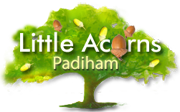 At Little Acorns Nursery, we know how beneficial learning to play an instrument is for under fives. Indeed, children at this Padiham nursery have multiple opportunities for making sounds, tapping out rhythms, and making music of some kind — along with a whole host of other sensory and creative activities. Such activities are hugely beneficial and, what’s more, the children thoroughly enjoy them. We therefore hope parents and carers can encourage children to continue their musical journey when at home. Music making is so good for them — and who knows what heights it could take them to!
At Little Acorns Nursery, we know how beneficial learning to play an instrument is for under fives. Indeed, children at this Padiham nursery have multiple opportunities for making sounds, tapping out rhythms, and making music of some kind — along with a whole host of other sensory and creative activities. Such activities are hugely beneficial and, what’s more, the children thoroughly enjoy them. We therefore hope parents and carers can encourage children to continue their musical journey when at home. Music making is so good for them — and who knows what heights it could take them to!
If you’d like to learn more about a nursery place for your child at Little Acorns Nursery in Padiham, please get in touch. We support all the childcare funding schemes on offer to eligible families, making it more affordable to Lancashire families. We may also be a convenient childcare choice for families nearby in Hapton, Rose Grove, Burnley, Altham, Huncoat, Read, Simonstone, Sabden, Higham and Wood End. Simply choose a button to get started:



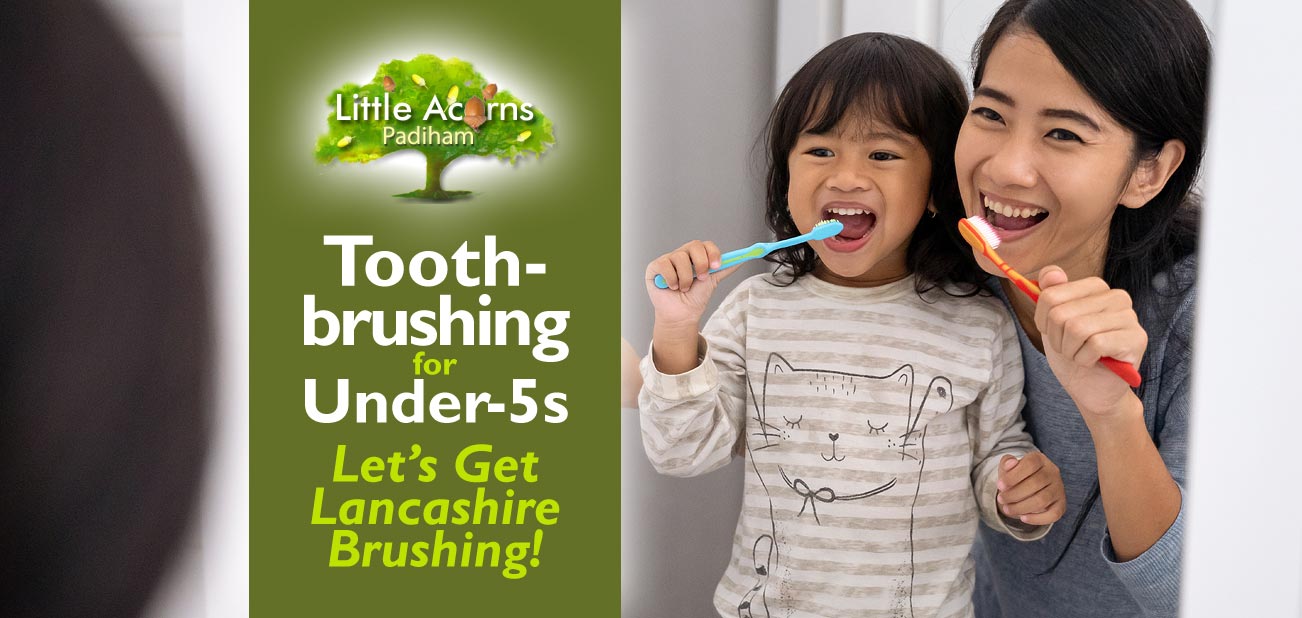
 Today we bring you a guide to toothbrushing for under-fives, inspired by children at Little Acorns Nursery taking part in Lancashire’s Let’s Get Lancashire Brushing campaign. An initiative of Lancashire County Council Public Health, the programme is designed to educate and encourage young children, including toddlers, to brush teeth for 2 minutes twice a day using age-appropriate toothpaste. What’s more, their message is that it’s never too young to begin and can even start before the first tooth has surfaced. At Little Acorns Nursery, the programme is supervised by staff and is intended to take place in tandem with toothbrushing at home — it does not replace it. Nursery staff guide children to establish a positive and proactive routine around toothbrushing, to foster good habits around oral hygiene, and thereby minimise tooth decay and problems associated with it.
Today we bring you a guide to toothbrushing for under-fives, inspired by children at Little Acorns Nursery taking part in Lancashire’s Let’s Get Lancashire Brushing campaign. An initiative of Lancashire County Council Public Health, the programme is designed to educate and encourage young children, including toddlers, to brush teeth for 2 minutes twice a day using age-appropriate toothpaste. What’s more, their message is that it’s never too young to begin and can even start before the first tooth has surfaced. At Little Acorns Nursery, the programme is supervised by staff and is intended to take place in tandem with toothbrushing at home — it does not replace it. Nursery staff guide children to establish a positive and proactive routine around toothbrushing, to foster good habits around oral hygiene, and thereby minimise tooth decay and problems associated with it.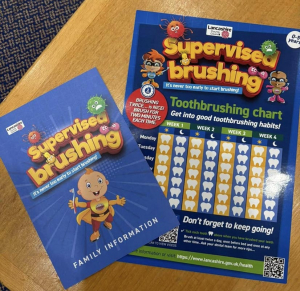
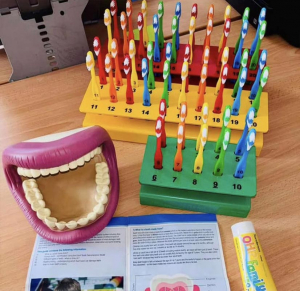
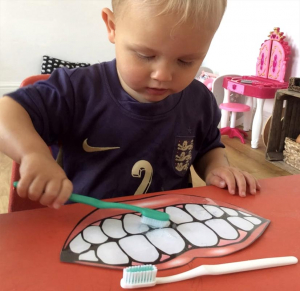
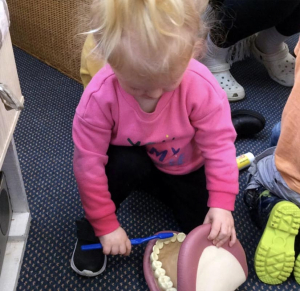

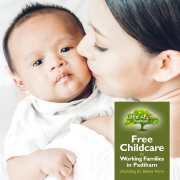
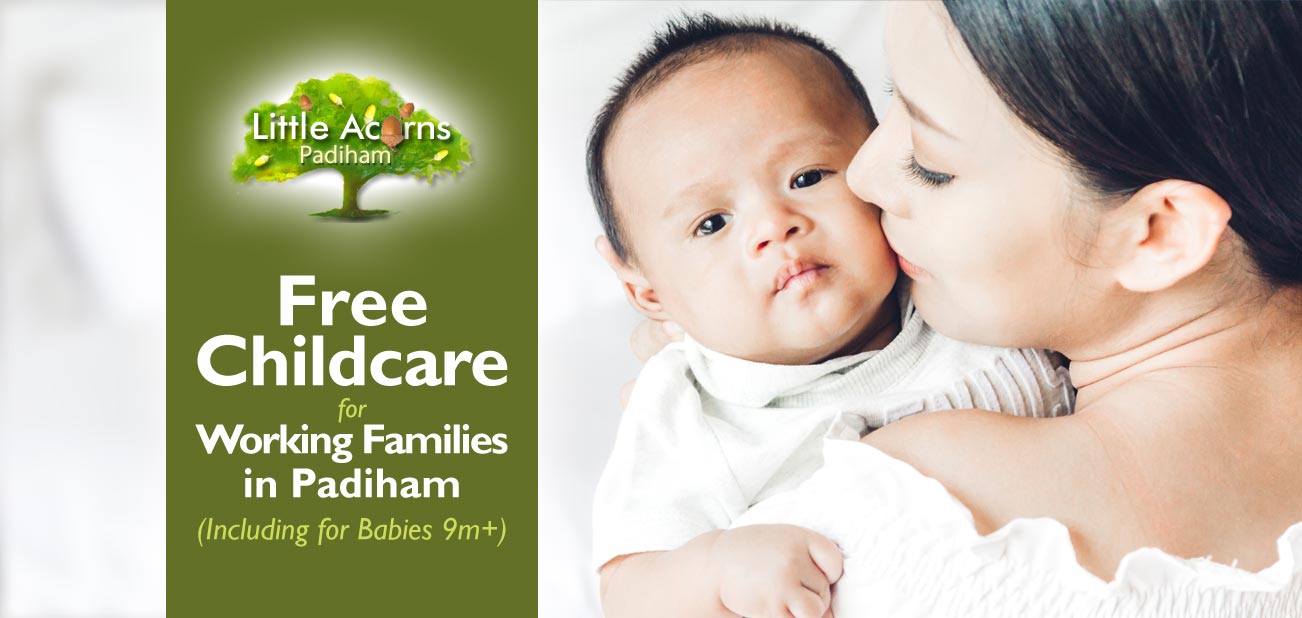
 Today, we remind Padiham families that Little Acorns Nursery supports the new — free — childcare scheme for eligible children including babies as young as just 9 months of age. Although it’s available only to eligible working families, the bar to entry is fairly low. The childcare funding is therefore attainable for many families. This free childcare is not just limited to babies either and, what’s more, it’s due to become even more generous from September 2025. In our guide below we’ll outline who is eligible, how much childcare funding they can access, how many childcare hours that equates to, and what the eligibility criteria are. If you’re the parent of a baby, toddler, or child up to three years old, this is for you.
Today, we remind Padiham families that Little Acorns Nursery supports the new — free — childcare scheme for eligible children including babies as young as just 9 months of age. Although it’s available only to eligible working families, the bar to entry is fairly low. The childcare funding is therefore attainable for many families. This free childcare is not just limited to babies either and, what’s more, it’s due to become even more generous from September 2025. In our guide below we’ll outline who is eligible, how much childcare funding they can access, how many childcare hours that equates to, and what the eligibility criteria are. If you’re the parent of a baby, toddler, or child up to three years old, this is for you. For those working families who are eligible, the scheme provides 570 hours per year of free childcare to children aged from 9 months to 3 years. This is normally taken as 15 hours per week for 38 weeks, usually aligning with the standard educational term-time weeks for school timetables. That said, it may be possible to stretch the hours over more weeks of the year if your childcare provider is able to accommodate such flexibility.
For those working families who are eligible, the scheme provides 570 hours per year of free childcare to children aged from 9 months to 3 years. This is normally taken as 15 hours per week for 38 weeks, usually aligning with the standard educational term-time weeks for school timetables. That said, it may be possible to stretch the hours over more weeks of the year if your childcare provider is able to accommodate such flexibility. We’ll try to simplify the eligibility criteria for you. Whether it’s for a baby aged 9 months, a toddler of 1 or 2, or a child aged 3 or 4, there are essentially four main criteria for this specific type of childcare funding:
We’ll try to simplify the eligibility criteria for you. Whether it’s for a baby aged 9 months, a toddler of 1 or 2, or a child aged 3 or 4, there are essentially four main criteria for this specific type of childcare funding: Well, it’s good news. It’s already the case that all 3 and 4-year-olds living in England are eligible to receive 570 hours (15 per week) of free childcare anyway. That’s available under what’s known as ‘Universal Entitlement’, a Government childcare funding scheme that’s been around for some time. What’s more, those working families that are eligible for the ‘new’ free childcare for children aged 9 months to 3 years are also likely to be eligible for a top-up of their child’s Universal Entitlement once they reach the ages of 3 and 4. In those cases, they’ll be entitled to 30 hours per week over 38 weeks (or however the 1140 free hours are spread out). That’s because the eligibility criteria are the same (see section above).
Well, it’s good news. It’s already the case that all 3 and 4-year-olds living in England are eligible to receive 570 hours (15 per week) of free childcare anyway. That’s available under what’s known as ‘Universal Entitlement’, a Government childcare funding scheme that’s been around for some time. What’s more, those working families that are eligible for the ‘new’ free childcare for children aged 9 months to 3 years are also likely to be eligible for a top-up of their child’s Universal Entitlement once they reach the ages of 3 and 4. In those cases, they’ll be entitled to 30 hours per week over 38 weeks (or however the 1140 free hours are spread out). That’s because the eligibility criteria are the same (see section above).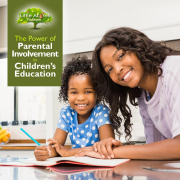
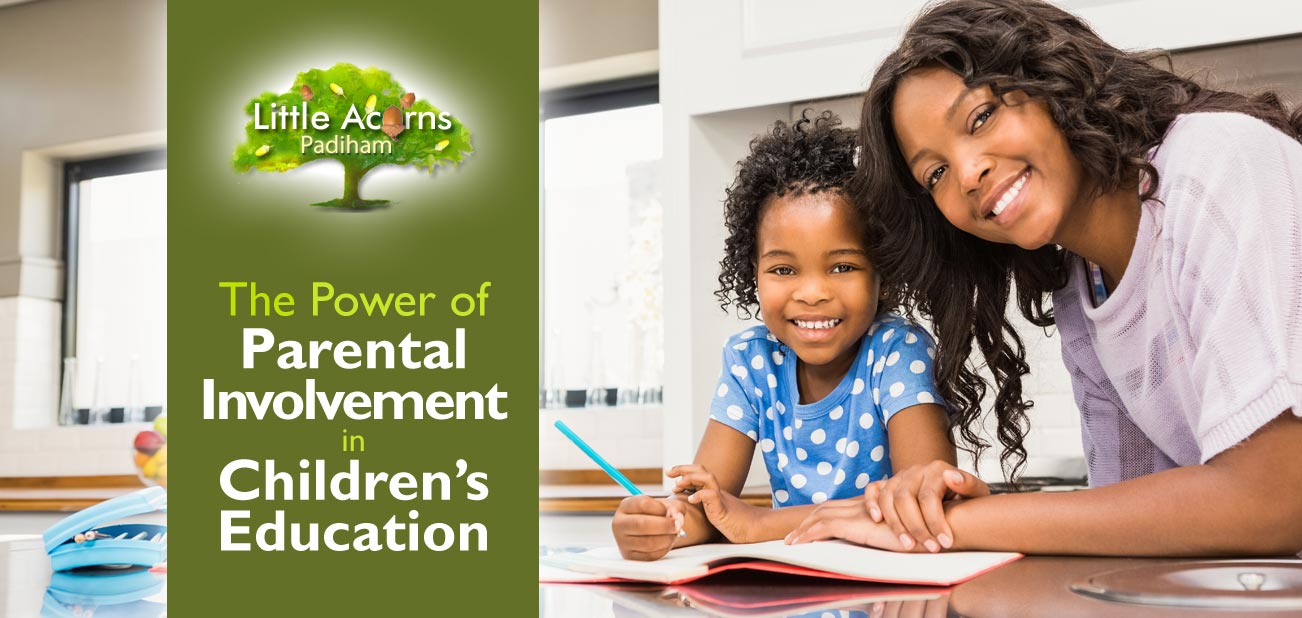
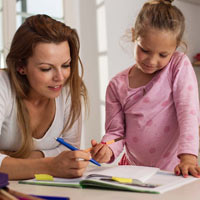 Parental involvement in a child’s education can take several forms. Note, however, that the benefits are most positive when parents engage right from the early years, beginning in children’s nursery and preschool years. The examples below show the kinds of parental involvement that will enhance children’s lives:
Parental involvement in a child’s education can take several forms. Note, however, that the benefits are most positive when parents engage right from the early years, beginning in children’s nursery and preschool years. The examples below show the kinds of parental involvement that will enhance children’s lives: Applying that information in the form of help and support while the child is at home. Referring to the right textbooks, helping with homework, and helping the child understand any tricky topics are typical examples of areas where parents can help children at home.
Applying that information in the form of help and support while the child is at home. Referring to the right textbooks, helping with homework, and helping the child understand any tricky topics are typical examples of areas where parents can help children at home. When children do well, praising them will encourage them to keep up the good work. It’ll give them a greater sense of achievement, and some moral support, and help instil a love for learning in them.
When children do well, praising them will encourage them to keep up the good work. It’ll give them a greater sense of achievement, and some moral support, and help instil a love for learning in them. Let’s now look at some of the benefits that children can expect to enjoy when parents are closely involved in their education.
Let’s now look at some of the benefits that children can expect to enjoy when parents are closely involved in their education. The benefits of parental involvement in education to children are numerous, though, also including the lowering of stress levels and improved knowledge, skills, outlook and outcomes. The deep and reliable source of support, together with all the other benefits, also combine to make children feel happier, have a higher quality of life, be less likely to skip lessons, be well-behaved, and have closer bonds with both parents and childcare/education staff.
The benefits of parental involvement in education to children are numerous, though, also including the lowering of stress levels and improved knowledge, skills, outlook and outcomes. The deep and reliable source of support, together with all the other benefits, also combine to make children feel happier, have a higher quality of life, be less likely to skip lessons, be well-behaved, and have closer bonds with both parents and childcare/education staff.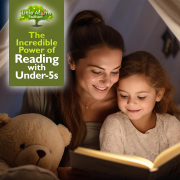
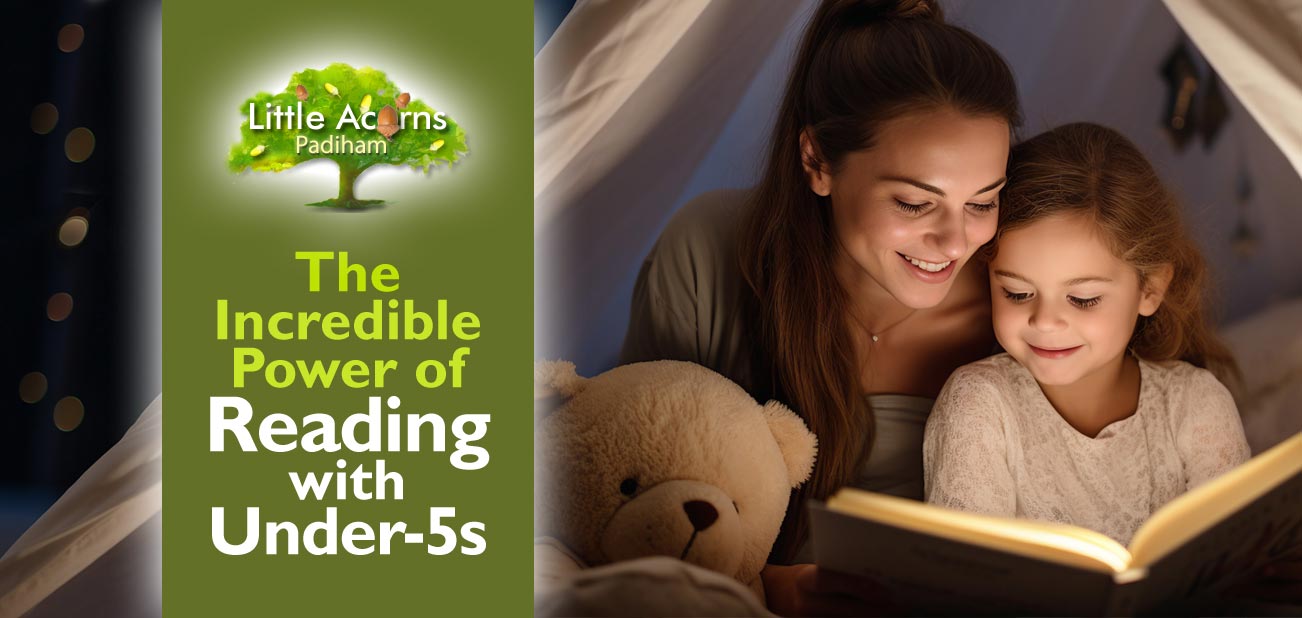
 Parents and caregivers have a simple yet incredibly powerful tool at their disposal to significantly boost the education of children under five: reading with them. In study after study, this simple activity has been shown to transform a child’s early years of education, giving children short-, medium-, and long-term benefits that even extend into adulthood. With that in mind, we take a look today at the many benefits and incredible power of reading with children, especially those under five.
Parents and caregivers have a simple yet incredibly powerful tool at their disposal to significantly boost the education of children under five: reading with them. In study after study, this simple activity has been shown to transform a child’s early years of education, giving children short-, medium-, and long-term benefits that even extend into adulthood. With that in mind, we take a look today at the many benefits and incredible power of reading with children, especially those under five. When you read to them, the cognitive benefits to children are profound and this is backed-up by findings from multiple studies. The benefits include improved memory, problem-solving, logical thinking, and memory skills. Even children’s attention spans are seen to improve when parents regularly read with them.
When you read to them, the cognitive benefits to children are profound and this is backed-up by findings from multiple studies. The benefits include improved memory, problem-solving, logical thinking, and memory skills. Even children’s attention spans are seen to improve when parents regularly read with them. One of the biggest winners when reading with children is the boost to their language skills. Indeed, a 4-decade study (
One of the biggest winners when reading with children is the boost to their language skills. Indeed, a 4-decade study ( If children are to get the most from reading, it’s important to read with them. That’s all about making it interactive, engaging and fun to ensure children are involved. There are a number of ways to accomplish this and doing so will be the key to them gaining the most benefit from the activity.
If children are to get the most from reading, it’s important to read with them. That’s all about making it interactive, engaging and fun to ensure children are involved. There are a number of ways to accomplish this and doing so will be the key to them gaining the most benefit from the activity.

 Calling all little citizen scientists — we need your help — and parents too! During part of July and early August the Big Butterfly Count takes place across the UK and the more children and families that take part, the better. All it needs to take is 15 minutes and taking part will help butterflies, daytime-flying moths and the conservation of nature and biodiversity in general. What’s more, it’s a free, enjoyable, educational, and hugely worthwhile activity for children and families to take part in. In today’s post, we’ll tell you everything you need to know in order to take part in 2024’s Big Butterfly Count. Little citizen scientists: get ready!
Calling all little citizen scientists — we need your help — and parents too! During part of July and early August the Big Butterfly Count takes place across the UK and the more children and families that take part, the better. All it needs to take is 15 minutes and taking part will help butterflies, daytime-flying moths and the conservation of nature and biodiversity in general. What’s more, it’s a free, enjoyable, educational, and hugely worthwhile activity for children and families to take part in. In today’s post, we’ll tell you everything you need to know in order to take part in 2024’s Big Butterfly Count. Little citizen scientists: get ready! You’ll need a tiny bit of preparation, but it’s quick, free, and easy…
You’ll need a tiny bit of preparation, but it’s quick, free, and easy…

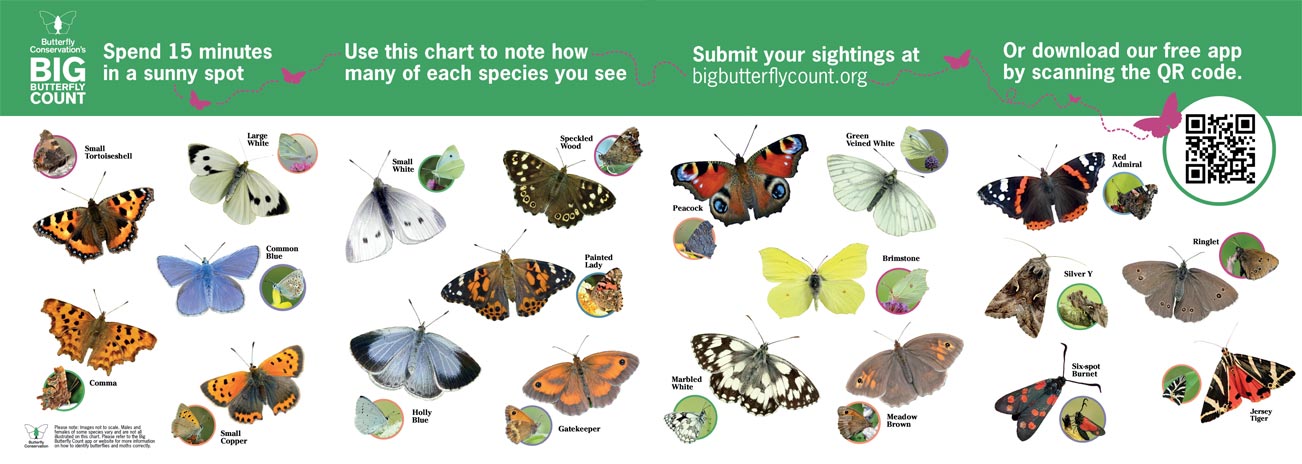
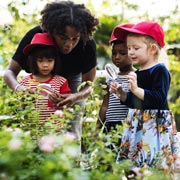 Once you’ve chosen a suitable location that has flowers blooming and is ideally sunny and sheltered, you are ready to count butterflies and submit them to the Big Butterfly Count survey.
Once you’ve chosen a suitable location that has flowers blooming and is ideally sunny and sheltered, you are ready to count butterflies and submit them to the Big Butterfly Count survey. In addition to taking part in the Big Butterfly Count, children and families can help butterflies in other simple ways too. What’s more, they’re also fun, educational, and make the world a better place. Additional ways to help butterflies – and other pollinators – include:
In addition to taking part in the Big Butterfly Count, children and families can help butterflies in other simple ways too. What’s more, they’re also fun, educational, and make the world a better place. Additional ways to help butterflies – and other pollinators – include:
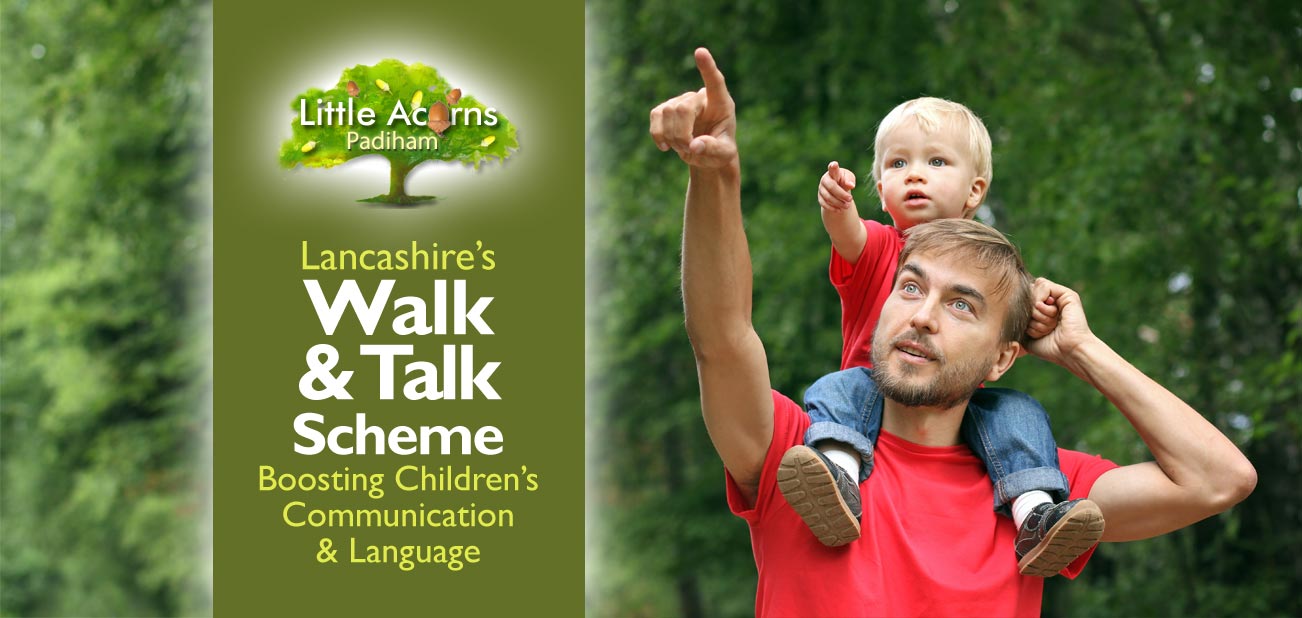
 Lancashire’s Walk & Talk Initiative is a scheme that’s wholeheartedly supported by the childcare practitioners at Little Acorns Nursery in Padiham. We encourage all Lancashire parents to take part too. It’s an initiative that is incredibly simple but has far-reaching benefits for children in their early years. Let’s take a look today at what Walk & Talk is all about, what its aims are, the benefits to children, and how families can get involved.
Lancashire’s Walk & Talk Initiative is a scheme that’s wholeheartedly supported by the childcare practitioners at Little Acorns Nursery in Padiham. We encourage all Lancashire parents to take part too. It’s an initiative that is incredibly simple but has far-reaching benefits for children in their early years. Let’s take a look today at what Walk & Talk is all about, what its aims are, the benefits to children, and how families can get involved.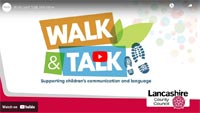
 a reduction in the ‘word gap’ — helping children learn new words and widen vocabulary;
a reduction in the ‘word gap’ — helping children learn new words and widen vocabulary; The scheme also aims to encourage children to use a variety of senses. These include, for example, sight, smell, touch, taste, hearing and, of course, active listening. When out on walks there are so many different things for children’s senses to be stimulated by and each lends itself to a conversation. Whether it’s the sound of birdsong, the feeling of the wind on their faces, the smell of freshly-cut grass on the breeze, the noise of traffic, the dazzlingly beautiful colours of blossom, or the mouth-watering smell of food cooking around the neighbourhood or town, walking is indeed a feast for the senses.
The scheme also aims to encourage children to use a variety of senses. These include, for example, sight, smell, touch, taste, hearing and, of course, active listening. When out on walks there are so many different things for children’s senses to be stimulated by and each lends itself to a conversation. Whether it’s the sound of birdsong, the feeling of the wind on their faces, the smell of freshly-cut grass on the breeze, the noise of traffic, the dazzlingly beautiful colours of blossom, or the mouth-watering smell of food cooking around the neighbourhood or town, walking is indeed a feast for the senses.
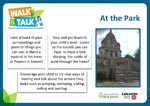

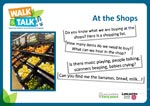


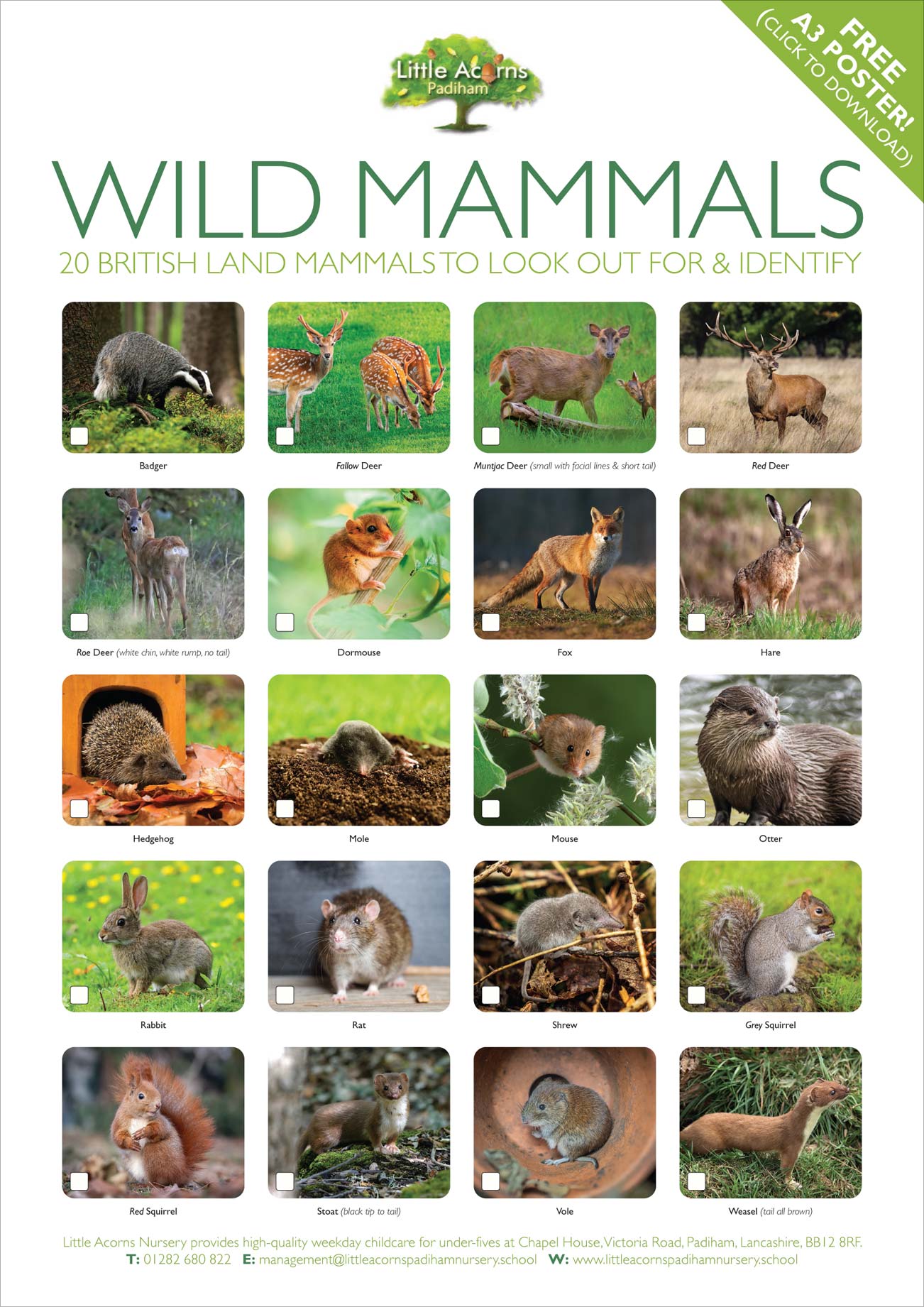
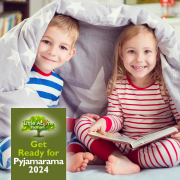
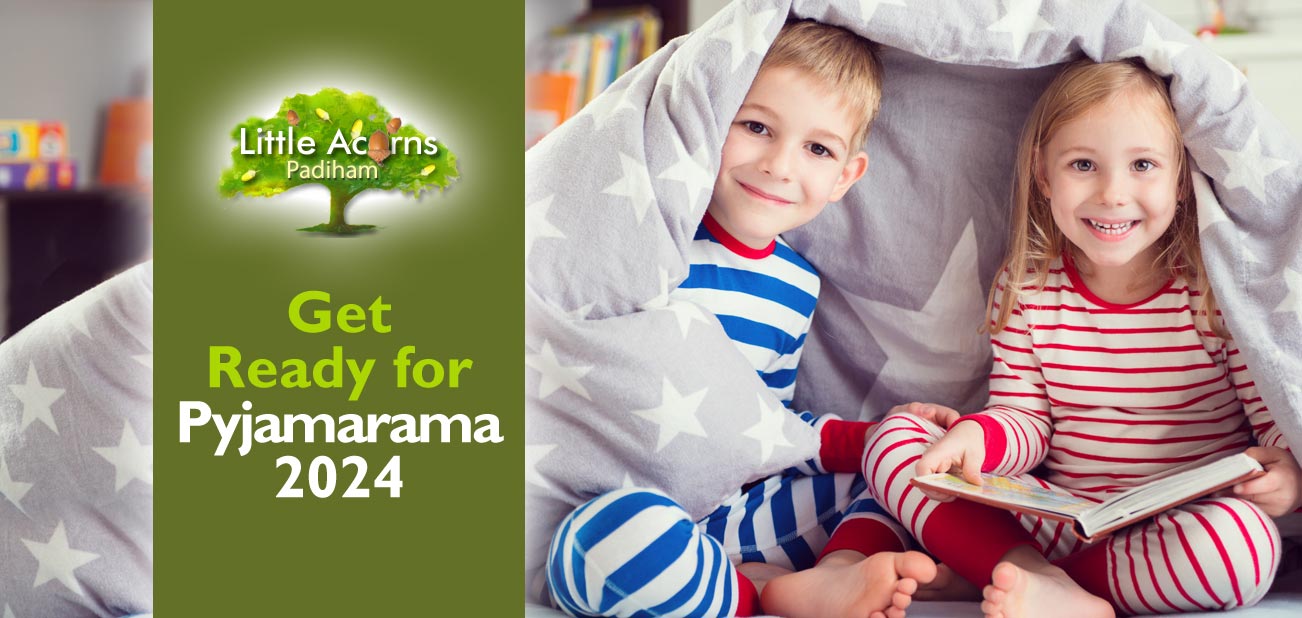
 Pyjamarama is a one-day fundraising event that’s organised through the children’s reading charity BookTrust. It takes place each year across a variety of UK settings including homes, schools, preschools, nurseries and more. As well as being great fun for those organising and taking part, the initiative is beneficial to millions of disadvantaged children. The ultimate aim is to raise money to fund the purchase of books and resources, so that every child in the UK gets the chance for bedtime stories and each family has proper reading opportunities. The initiative is hugely popular, great fun, and transforms lives. Today, we take a look at what to expect, how to get involved, and the many benefits of Pyjamarama.
Pyjamarama is a one-day fundraising event that’s organised through the children’s reading charity BookTrust. It takes place each year across a variety of UK settings including homes, schools, preschools, nurseries and more. As well as being great fun for those organising and taking part, the initiative is beneficial to millions of disadvantaged children. The ultimate aim is to raise money to fund the purchase of books and resources, so that every child in the UK gets the chance for bedtime stories and each family has proper reading opportunities. The initiative is hugely popular, great fun, and transforms lives. Today, we take a look at what to expect, how to get involved, and the many benefits of Pyjamarama. Pyjamarama is always a fun day for both adults and children. The added aspect of pyjamas makes it special, quirky and relaxed. And, at the end of the day, it’s incredibly worthwhile. Not only does it raise money to give disadvantaged children and their families opportunities for reading and bedtime stories, but it also encourages those children taking part in Pyjamarama to read more, for pleasure as much as anything. Additionally, it gives children a different perspective and encourages altruism and empathy for others less fortunate than themselves.
Pyjamarama is always a fun day for both adults and children. The added aspect of pyjamas makes it special, quirky and relaxed. And, at the end of the day, it’s incredibly worthwhile. Not only does it raise money to give disadvantaged children and their families opportunities for reading and bedtime stories, but it also encourages those children taking part in Pyjamarama to read more, for pleasure as much as anything. Additionally, it gives children a different perspective and encourages altruism and empathy for others less fortunate than themselves.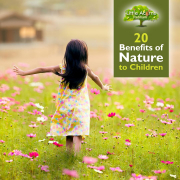
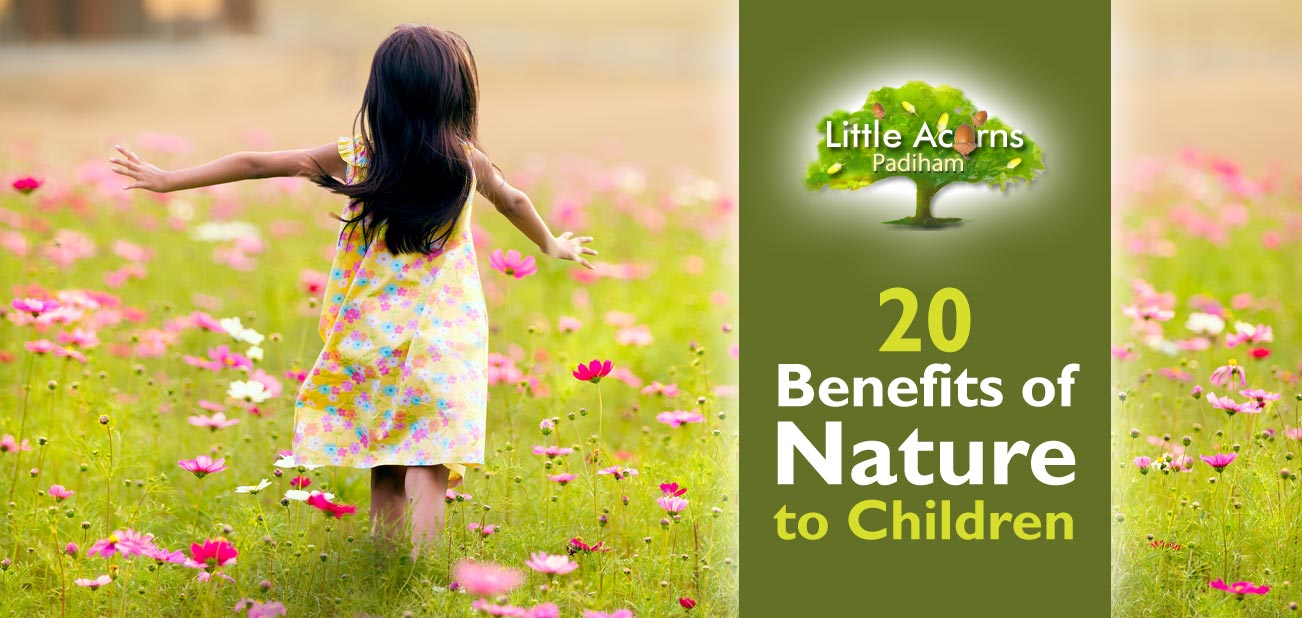
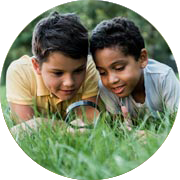 One of the many reasons we love nature and nature-based children’s activities here at Little Acorns Nursery is that nature is incredibly beneficial to children. What’s more, the benefits start right from their earliest years and are profoundly powerful to little ones. There have been many studies about this over the years and they all seem to conclude that nature is incredibly good for us all, especially so during the early years. Today’s post looks at 20 of the key benefits that spending time in and around nature holds for children and, with Spring now upon us, it’s the perfect time to begin getting little ones outside more, weather permitting.
One of the many reasons we love nature and nature-based children’s activities here at Little Acorns Nursery is that nature is incredibly beneficial to children. What’s more, the benefits start right from their earliest years and are profoundly powerful to little ones. There have been many studies about this over the years and they all seem to conclude that nature is incredibly good for us all, especially so during the early years. Today’s post looks at 20 of the key benefits that spending time in and around nature holds for children and, with Spring now upon us, it’s the perfect time to begin getting little ones outside more, weather permitting. Spending time in and around nature means children are more likely to be active, for example, walking, running, skipping, climbing, playing, making, or simply building a den. Such activities will not only help them hone fine and gross motor skills, but will also improve coordination, balance, and fitness. Those skills will help them day-to-day while expending energy in this way will help them maintain a healthy weight and body-mass index.
Spending time in and around nature means children are more likely to be active, for example, walking, running, skipping, climbing, playing, making, or simply building a den. Such activities will not only help them hone fine and gross motor skills, but will also improve coordination, balance, and fitness. Those skills will help them day-to-day while expending energy in this way will help them maintain a healthy weight and body-mass index. One of the more obvious benefits of nature is that it gives children a huge sense of freedom that they might not otherwise experience. Being in The Great Outdoors allows children, under appropriate supervision, to run, explore, and play in ways that are far more free than in any other situation. This will also give them a huge sense of natural joy.
One of the more obvious benefits of nature is that it gives children a huge sense of freedom that they might not otherwise experience. Being in The Great Outdoors allows children, under appropriate supervision, to run, explore, and play in ways that are far more free than in any other situation. This will also give them a huge sense of natural joy.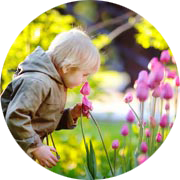 The stimulation of the senses is never more important than during children’s early years and spending time in nature is the perfect vehicle through which to do so. With so many colours, sounds, smells, textures and even (under adult supervision) tastes available in the natural world, it is indeed a feast for children’s senses. Through the senses, children will learn more about the world and generate millions of new connections in their developing brains. It’s almost magical!
The stimulation of the senses is never more important than during children’s early years and spending time in nature is the perfect vehicle through which to do so. With so many colours, sounds, smells, textures and even (under adult supervision) tastes available in the natural world, it is indeed a feast for children’s senses. Through the senses, children will learn more about the world and generate millions of new connections in their developing brains. It’s almost magical!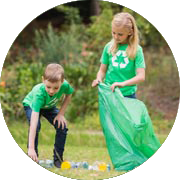 Being around nature regularly can also help children lean naturally towards environmental issues, learn about the problems and become part of the solution. An appreciation of nature is indeed the first step towards becoming environmentally conscious and proactive. That’s a great thing for the planet, particularly as today’s children will become tomorrow’s custodians of the Earth.
Being around nature regularly can also help children lean naturally towards environmental issues, learn about the problems and become part of the solution. An appreciation of nature is indeed the first step towards becoming environmentally conscious and proactive. That’s a great thing for the planet, particularly as today’s children will become tomorrow’s custodians of the Earth.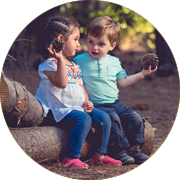 Children generally team up with friends when they’re playing and exploring outdoors. Spending time playing together in natural environments fosters many different kinds of interaction. This can boost confidence, language, communication and social skills. Stronger bonds and a deeper understanding of peers are likely to form from this.
Children generally team up with friends when they’re playing and exploring outdoors. Spending time playing together in natural environments fosters many different kinds of interaction. This can boost confidence, language, communication and social skills. Stronger bonds and a deeper understanding of peers are likely to form from this.